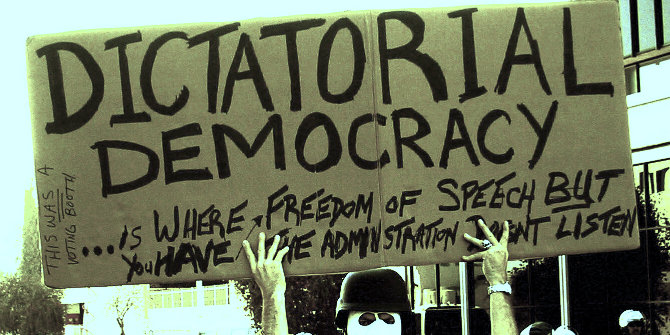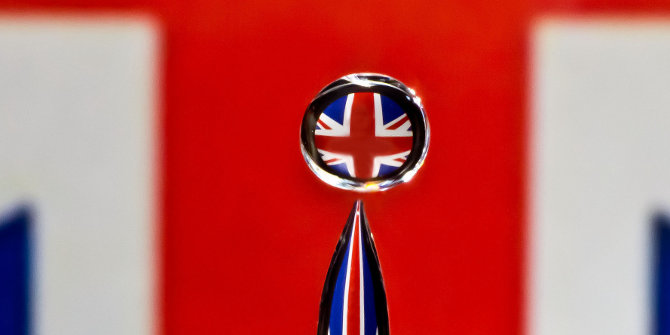 The Netherlands is due to hold parliamentary elections in March 2017. In the leadup to the vote we will be publishing a number of articles on the parties and the campaign. In the first article in the series, Hans Vollaard writes on the Dutch party system and why efforts to form the next government are likely to be extremely complex.
The Netherlands is due to hold parliamentary elections in March 2017. In the leadup to the vote we will be publishing a number of articles on the parties and the campaign. In the first article in the series, Hans Vollaard writes on the Dutch party system and why efforts to form the next government are likely to be extremely complex.
With only five months to go until the next parliamentary elections in the Netherlands, scheduled for March 2017, the country’s political parties are gearing up for the campaign. Debates over the annual budget in September gave a glimpse into the strategies of the main characters and how the main campaign themes of healthcare, migration and the economy might play out. The precise level of support each party will achieve is hard to predict due to the volatility of Dutch elections, but a fragmented parliament and a complicated coalition formation process are likely.
The parties and the campaign
The elections for the Tweede Kamer, which is the most important chamber of parliament, will take place on 15 March if the present coalition government manages to serve its full term – which would be the first time this has occurred since 2002. Parties’ names and candidate lists should be registered with the Electoral Council in the coming months. The election will use a proportional representation system across a single nationwide constituency, ensuring the share of the 150 seats each party will receive is in line with the number of votes they obtain.

Current Prime Minister Mark Rutte campaigning in Amsterdam. Credits: Jos van Zetten (CC BY 2.0).
At present, the Tweede Kamer harbours 15 parliamentary groups, including five splinter groups. The current government relies on the support of the right-wing VVD of Prime Minister Mark Rutte (40 seats) and the centre-left PvdA (36 seats). The latter is internationally known for its Minister of Finance, Jeroen Dijsselbloem, the chair of the Eurogroup (the ministers of finance of the Eurozone countries).
The recent budget debate underlined Rutte’s status as an able survivor in Dutch politics. Since becoming prime minister after elections in 2010 and 2012, he has shown sufficient flexibility to gain majority support for a series of major reforms to sustain the welfare state in the fragmented first and second chambers of parliament. Rutte now sits at the centre of the VVD’s campaign as the party looks toward 2017.
The leaders of the opposition parties will mostly be the same as in the last election in 2012, from the Animal Rights Party to the pensioners’ party, 50Plus. Only the small GroenLinks and ChristenUnie parties have changed leaders among the main players, although the PvdA still has to decide on a new leader (with its present parliamentary leader Diederik Samson one of the candidates). A new party, Denk, which split-off from the PvdA, will campaign for the sake of migrants and their descendants. On the right, two new parties are to be led by the leading faces of the referendum campaign against the EU-Ukraine Treaty which took place in April.
At present, the VVD’s main opponent is the anti-Islam and anti-EU Party for Freedom (PVV), led by Geert Wilders, which has topped some recent polls. The VVD is in favour of fiscal austerity and a (European) free market, while it also advocates tough anti-crime and anti-terrorism policies, and is strict on migration and integration. The budget debate showed how the VVD has sought to distinguish itself from Wilders and the PVV. The party has emphasised its role in steering the Netherlands through economically difficult times and has also underlined that everyone should accept Dutch norms and values: that is, that Muslims and migrants should accept, but can also enjoy the country’s constitutional freedoms.

Party for Freedom (PVV)’s leader Geert Wilders at an event held by German anti-Islam movement ‘Pegida’. Credits: Metropolitico.org (CC BY-SA 2.0)
The VVD’s strategy in this sense is to focus attention on competition over cultural issues between the party and the PVV. In doing so, it has also sought to put its other key competitor, the centre-right Christian-Democrats (CDA), in the shade, as the CDA is traditionally associated with the issue of norms and values. With this stated, while voters are indeed much concerned about norms and values, they typically do not think ‘The Hague’ can do much to ensure decent standards of behaviour by citizens. However, in relation to the integration of Muslims and migrants, these issues are clearly far more politically salient.
Voters also consider economic issues to be important, but crucially this is now a less salient concern than it was in 2012. Recent evidence suggests that at present citizens perceive the issue of healthcare to be the most important on the political agenda. It is therefore no surprise that the opposition Socialist Party (SP) has tried to stake out this territory with a recent proposal to abolish so called ‘compulsory deductibles’ for health services and to remove the competitive elements from the Dutch healthcare system (in which private health insurers compete for clients and can contract hospitals for them).
Parties also differ on other important issues such as the country’s retirement age (this is set to increase over the coming years, while the PVV, 50Plus and to a lesser extent the SP all want it to stay at 65); the possibility of a ‘Nexit’ (which the PVV supports); the flexibility of the labour market; and defence spending. When all of these stances are considered, parties can effectively be divided along two dimensions: a multi-cultural and pro-EU dimension, with GroenLinks and D66 at one end and the nationalistic PVV at the other; and an economic dimension, with the pro-market VVD at the right of the spectrum and the Keynesian SP at the left.
A fragmented picture
Despite these diverse policy differences, most parties have so far treated each other with a certain level of restraint as they realise they may well need to reach coalition agreements following the election. Predicting how these alliances might develop is exceptionally difficult given the complex picture in the Dutch party system. Even if voters exhibit relatively stable preferences, we would expect their choice of party to be shaped heavily by the upcoming campaign, such as poor performances by leaders in electoral debates.
External events will also play a key role in shaping the choices of Dutch voters in 2017. The looming economic problems in Italy, potential terrorist attacks, a steep increase in flows of refugees, or the court case filed against Wilders over his call to reduce the number of Moroccans in the country are just some of the more obvious developments that could shape the result. The precise timing of the election could nevertheless limit the role that European issues will play as there are unlikely to be any key developments in relation to Brexit prior to the vote, while the key elections in France and Germany scheduled for 2017 will take place later in the year. This would be in contrast to 2012, where European integration featured prominently for the first time following the effects of the Eurozone crisis in Greece.
When the broader picture is considered, governing parties have lost seats at an increasing rate over the last decades. This is a likely fate for the PvdA in particular, which would receive only 12 seats if the latest opinion polls are correct. Coupled with the fact that the average number of seats won by parties is also declining, it may well be the case that the next coalition government will need to rely on at least five parties to ensure a majority in both chambers of parliament – including the indirectly elected Eerste Kamer. Wilders’ PVV is considered too controversial to be included in a government, although the VVD has not fully excluded this possibility. Whatever the election campaign produces, it is unlikely to be straightforward for any party to lead a government without enduring lengthy coalition negotiations with potential partners.
Please read our comments policy before commenting.
Note: This article gives the views of the author, and not the position of EUROPP – European Politics and Policy, nor of the London School of Economics.
Shortened URL for this post: http://bit.ly/2dZHh31
_________________________________
 Hans Vollaard – Leiden University
Hans Vollaard – Leiden University
Hans Vollaard is a Lecturer in Dutch and European politics at Leiden University.





The way the vote against the Ukraine was totally ignored by the EU as if the Nederland’s did not have a voice shows why politicians need putting in there place -they did not try to fight or block it – Time to get OUT of the corrupt federal state of the EU
Thanks for your clear picture of the state of Dutch politics leading towards the upcoming election. I hope the Dutch will be wise and moderate enough to have learnt from the worldwide democratic disasters of 2016. A lot of parties (including the VVD at this point) have declared that they won’t be forming a coalition with the PVV (far-right party), however I’m sceptical whether all of them will keep their word, when working with the PVV is the only chance to be part of the coalition.
For now, I’m just hoping that the lower levels of inequality within the Netherlands (compared to the US or UK) will prove enough to avert us from disaster… And I will vote for a party that most certainly won’t budge for a coalition with populists!
It will definitely be an interesting election in relation to unpredictability. I am very curious to see how this will all work out and whether a stable coalition can be formed